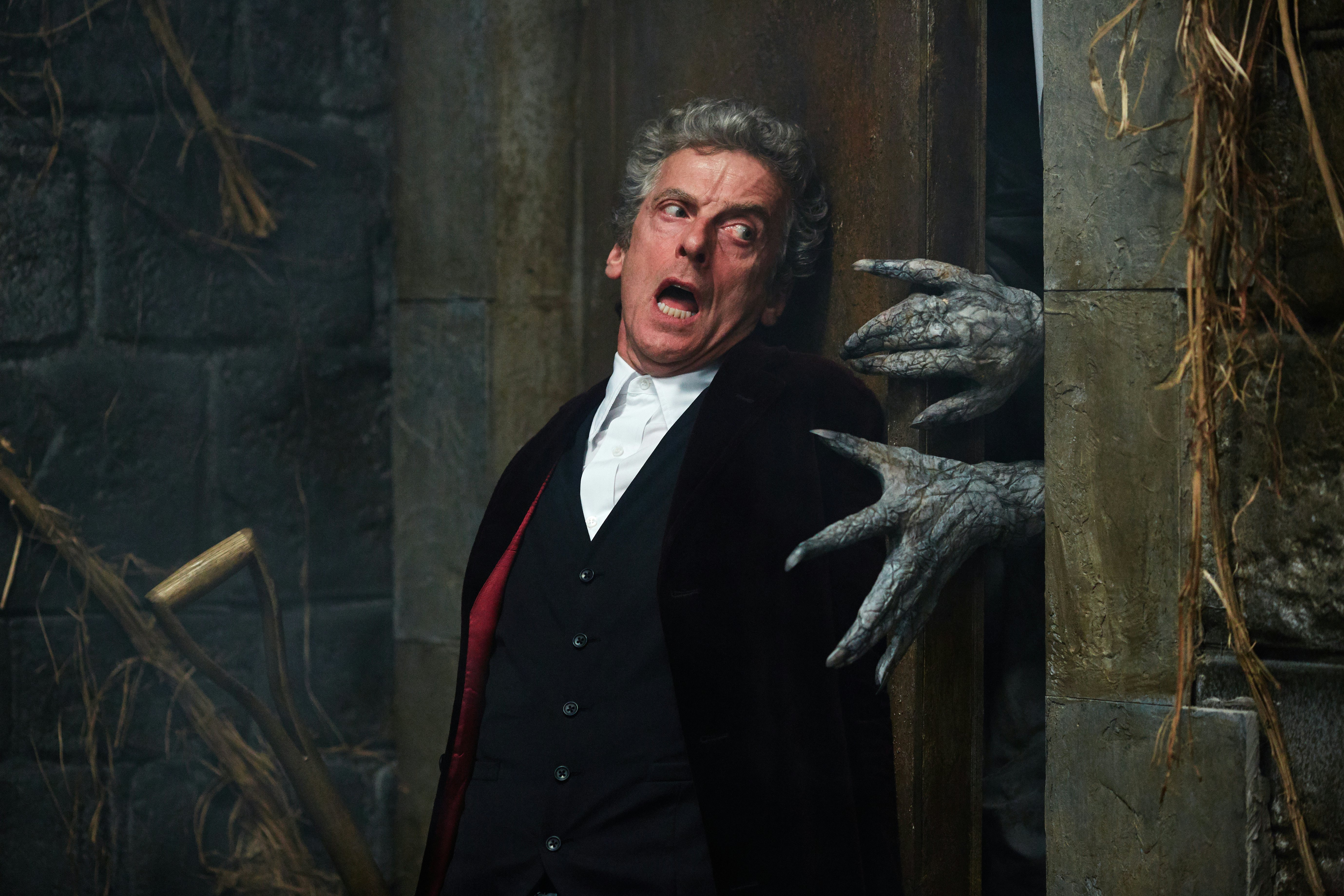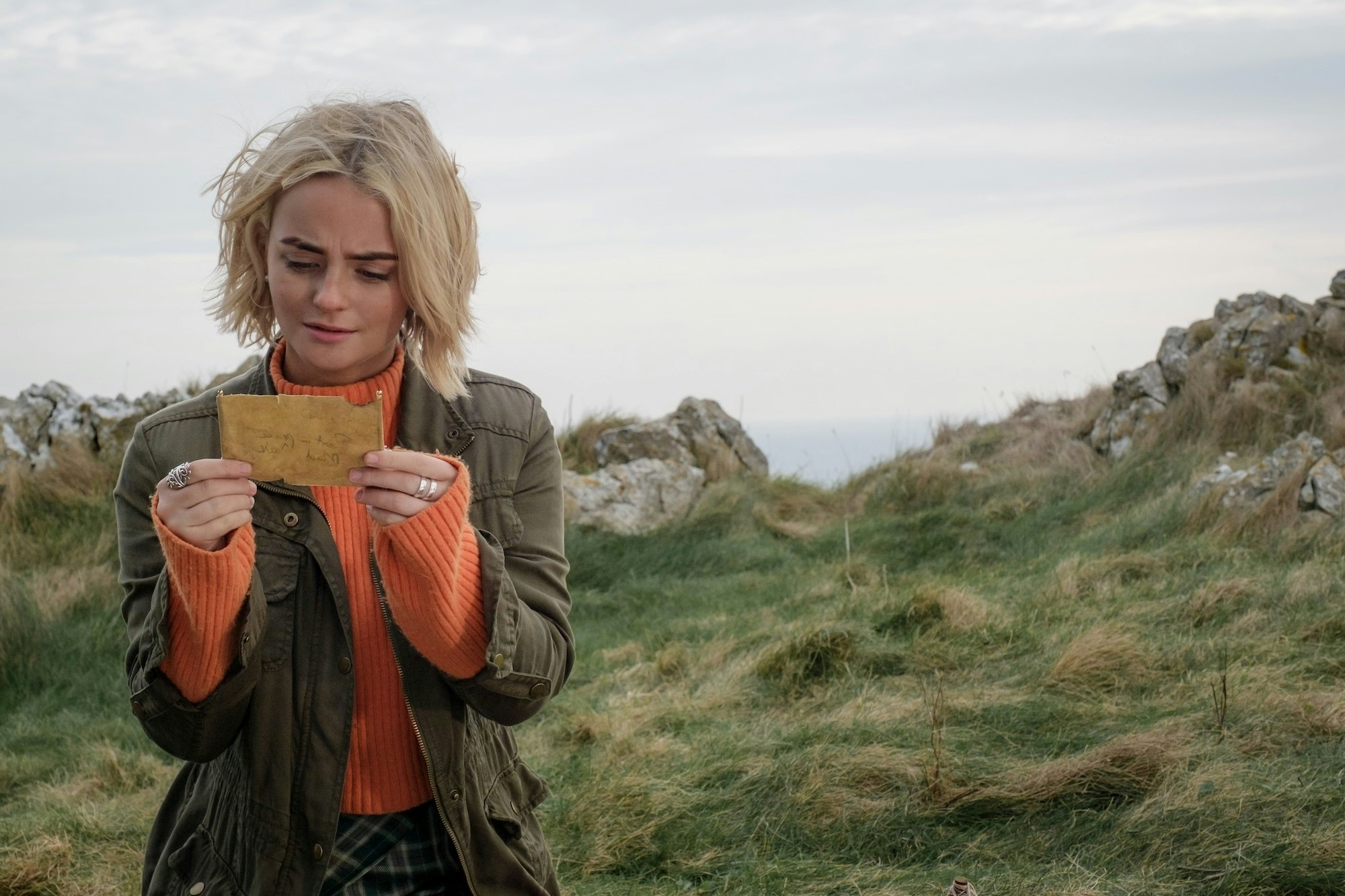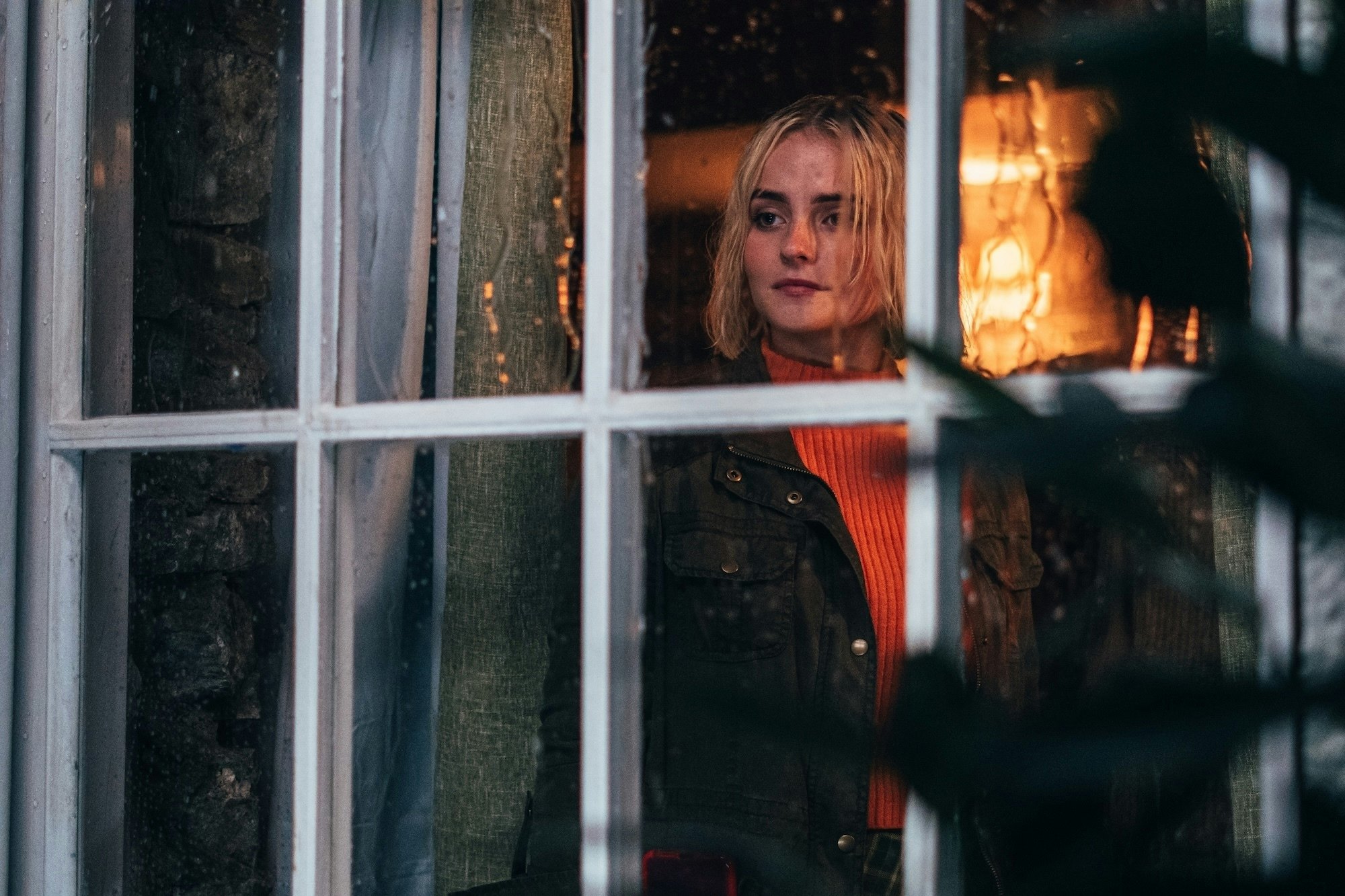
The current, Ncuti Gatwa-led era of Doctor Who hit a new high last week with "73 Yards." Penned by current Who showrunner Russell T. Davies, the Doctor-lite episode follows Ruby Sunday (Millie Gibson) after an incident involving a Welsh fairy circle leaves her alone, locked out of the TARDIS, and perpetually stalked by a mysterious woman who always appears 73 yards away from her. In case that wasn't bad enough, anyone Ruby sends to talk to her elderly specter, including her adoptive mother, is left so horrified by Ruby that they no longer want anything to do with her.
The episode has received numerous comparisons to "Turn Left," a memorable Doctor Who Season 4 installment that follows Donna Noble (Catherine Tate) as she ends up trapped in a reality where she never met David Tennant's Doctor and he subsequently died. Like "73 Yards," "Turn Left" is a Doctor-lite episode that gives one of the show’s companions the chance to shine. Both episodes also end with their alternative timelines essentially being erased — save for a few key lingering effects.
However, while "73 Yards" certainly feels like a spiritual cousin to "Turn Left," the standout chapter has just as much in common with "Heaven Sent," the Peter Capaldi-led 2015 installment that is still considered by many to be the best Doctor Who episode of the show's modern era — if not its entire run.

"73 Yards" is, to be clear, not quite as good as "Heaven Sent," but almost no Doctor Who episode is. That said, both episodes are not only incredibly well-written, performed, and executed, but they also challenge their characters in similar ways. In "Heaven Sent," the Doctor finds himself trapped in a castle with a cloaked figure that has the power to kill him simply by touching him. The only way for the Doctor to fend off his strange new enemy is by confessing personal truths to it, but when he realizes that the figure was made to pull one specific, dangerous secret out of him, he’s forced to find a less direct, more torturous way to beat both it and his unseen captors.
The episode takes place immediately after the events of "Face the Raven," which ends with the tragic death of the Doctor's companion, Clara Oswald (Jenna-Louise Coleman). The grief that the Doctor feels over Clara's death hangs heavy over all of "Heaven Sent," an episode that ultimately follows the Doctor as he dies billions of times only to repeatedly return as a new physical copy of himself. Every time he returns, his memory is reset and the pain of Clara's death is still fresh in his mind. Eventually, he manages to literally punch his own way out of his cerebral, unforgiving prison in an immensely powerful, meditative episode that offers some incredible, if tragic, insight into the Doctor’s mind.

Ruby Sunday doesn't have to go through nearly as physically brutal a gauntlet in "73 Yards" as the Doctor does in "Heaven Sent." Much like how that episode makes the Doctor face his deepest fears of dying, being alone, and having nowhere left to run to, "73 Yards" forces Ruby to deal with her lifelong fear of abandonment head-on. The nagging idea that there's something about you that would make everyone, even those close to you, want to run away out of fear or disgust is deeply relatable, but it's one that weighs particularly heavy on Ruby, who was abandoned as a baby by her mother.
Throughout its first half, "73 Yards" hits Ruby with her deepest fear over and over again. (In one of its most heartbreaking narrative parallels, Ruby finds herself locked out of the TARDIS in the episode's first scene and then locked out of her adoptive family's apartment later on.) Like the Doctor does in "Heaven Sent," she rages against her new normal and tries to find a way out of it only to end up trapped in the same devastating cycle. The episode's second half, however, follows her as she learns to live with her constant, always distant companion.
The extra presence in her life makes it difficult for her to form any deep relationships as an adult, but Ruby finds a way to use her curse for good by exposing a dangerous politician to her mysterious specter's brain-rattling power. In doing so, she seemingly repays whatever cosmic debt she accrued when she and the Doctor broke the episode’s central fairy circle. She's still forced to life a full life, though. It's only on her deathbed that her ever-distant companion allows her to travel back in time and save the Doctor and her younger self from making the same mistake they did years earlier. She gets a do-over, but when Ruby inexplicably says that she's been to Wales one more time than she did at the start of "73 Yards," it's made clear that her past life hasn't been entirely erased.

At the end of "Heaven Sent" and "73 Yards," both the Doctor and Ruby manage to make it through a lifetime's worth of frustration and pain. While it's the Doctor's relationship with Clara that carries him through "Heaven Sent," too, it's Ruby's relationship with the Doctor that ultimately keeps her going in "73 Yards." As she explains at the end of the episode, she managed to hold onto the hope that she could still live a good, worthwhile life even in the face of her greatest fears coming to fruition because she knew that's what the Doctor would do. He wouldn't lose hope, so she doesn't.
For these reasons and more, "73 Yards" and "Heaven Sent" form a fascinating double feature. One episode follows the Doctor in a rare period when he doesn't have a companion with him, while the other follows Ruby as she tries to push forward without him. By forcing both characters to go on similar journeys, the episodes manage to reveal new depths to the relationship that has always been at the heart of Doctor Who — no matter who is starring in it.
In "73 Yards," Millie Gibson also gets the chance — like Peter Capaldi did in "Heaven Sent" — to truly stake her own place in Doctor Who history, and she does just that. It's an episode that proves that Ruby Sunday — even without the mystery surrounding her birth — very much has what it takes to end up being one of the best Doctor Who companions we've seen in years. That's quite the accomplishment, and not just for Gibson, but also Davies and the rest of the current Doctor Who creative team.
New episodes of Doctor Who premiere Fridays on Disney+.







